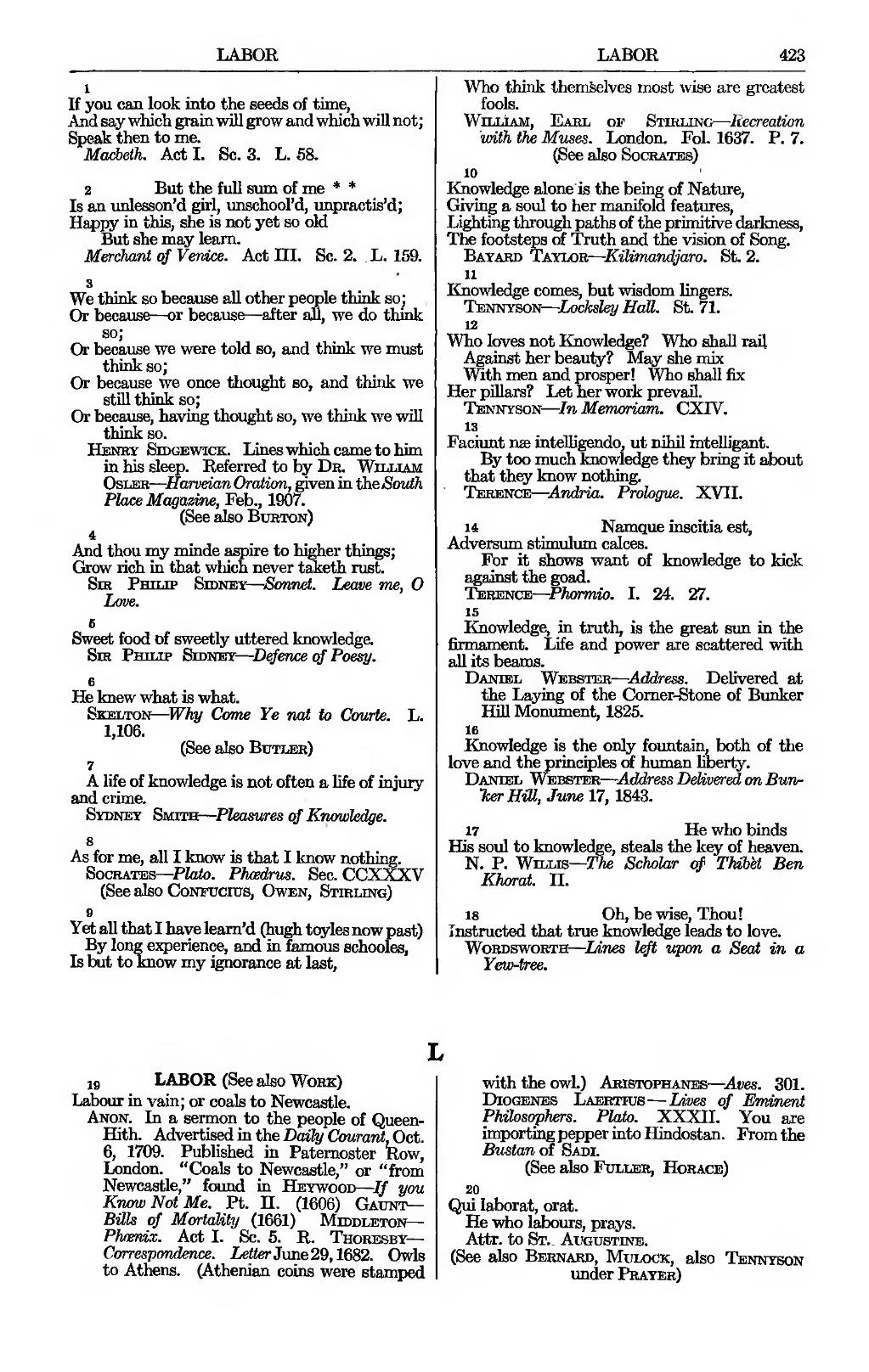If you can look into the seeds of time,
And say which grain will grow and which will not;
Speak then to me.
But the full sum of me * *
Is an unlesson'd girl, unschool'd, unpractis'd;
Happy in this, she is not yet so old
But she may learn.
We think so because all other people think so;
Or because—or because—after all, we do think so;
Or because we were told so, and think we must think so;
Or because we once thought so, and think we still think so;
Or because, having thought so, we think we will think so.
And thou my minde aspire to higher things;
Grow rich in that which never taketh rust.
Sweet food of sweetly uttered knowledge.
He knew what is what.
A life of knowledge is not often a life of injury and crime.
As for me, all I know is that I know nothing.
Yet all that I have learn'd (hugh toyles now past)
By long experience, and in famous schooles,
Is but to know my ignorance at last,
Who think themselves most wise are greatest fools.
Knowledge alone is the being of Nature,
Giving a soul to her manifold features,
Lighting through paths of the primitive darkness,
The footsteps of Truth and the vision of Song.
Knowledge comes, but wisdom lingers.
Who loves not Knowledge? Who shall rail
Against her beauty? May she mix
With men and prosper! Who shall fix
Her pillars? Let her work prevail.
Faciunt næ intelligendo, ut nihil intelligant.
By too much knowledge they bring it about that they know nothing.
Namque inscitia est,
Adversum stimulum calces.
For it shows want of knowledge to kick against the goad.
Knowledge, in truth, is the great sun in the firmament. Life and power are scattered with all its beams.
Knowledge is the only fountain, both of the love and the principles of human liberty.
He who binds
His soul to knowledge, steals the key of heaven.
Oh, be wise, Thou!
Instructed that true knowledge leads to love.
LABOR
(See also Work)
Labour in vain; or coals to Newcastle.
Qui laborat, orat.
He who labours, prays.
